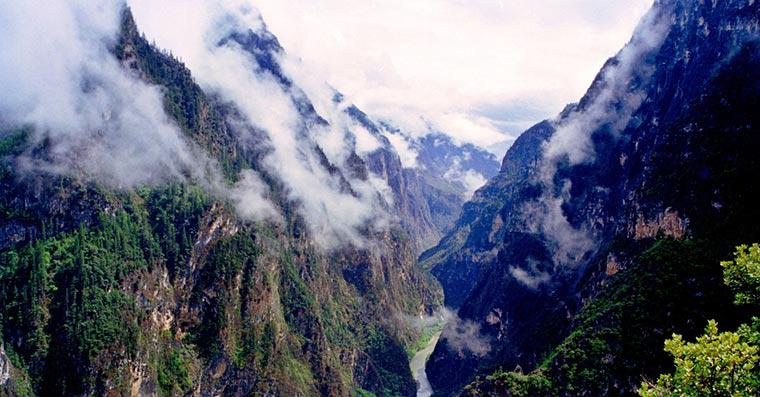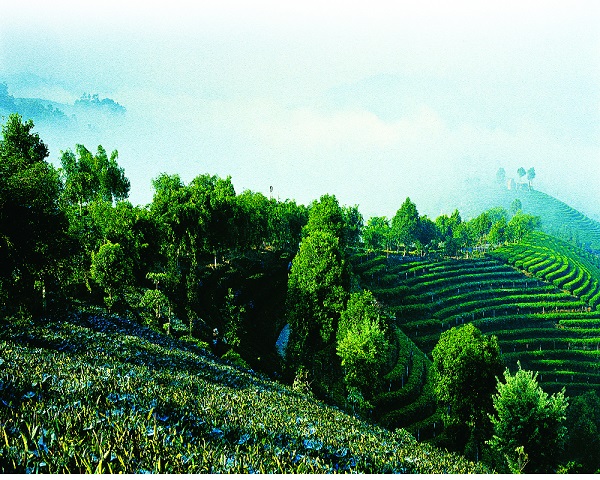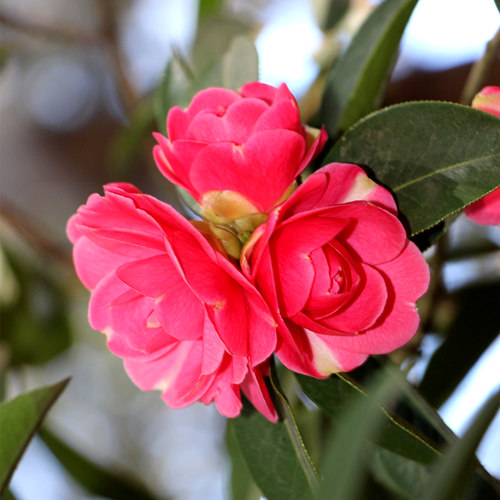
Detailed Introduction to Fugong County of Nujiang Prefecture
Overview
Fugong County (福贡县) is located in the central section of the Nujiang River Valley in Nujiang Lisu Autonomous Prefecture, northwestern Yunnan Province, China. It borders Gongshan County to the north, Lushui City to the south, and Myanmar to the west across the Nujiang River. Covering an area of about 2,700 square kilometers, Fugong has a population of approximately 120,000, mainly composed of Lisu, Nu, Bai, and Han ethnic groups.
Known as the “Pearl on the Nujiang River,” Fugong is famed for its towering mountains, lush forests, crystal-clear rivers, and vibrant ethnic culture. It is one of Yunnan’s most scenic and culturally diverse mountain counties.
Geography and Topography
Fugong is nestled deep within the Nujiang Grand Canyon, one of the most dramatic river gorges in the world. The county’s terrain is characterized by high mountains and deep valleys, with elevations ranging from about 700 meters near the Nujiang River to over 4,000 meters in the surrounding peaks such as Biluo Snow Mountain (碧罗雪山) and Gaoligong Mountain (高黎贡山).
The Nujiang River flows through the county from north to south, carving a breathtaking valley of cliffs, rapids, and narrow terraces that host most of the local settlements. The dramatic vertical landscape gives rise to rich biodiversity and distinct climatic zones within short distances.
Climate
Fugong experiences a subtropical mountain monsoon climate, featuring warm temperatures, abundant rainfall, and significant vertical variation due to elevation.
Average annual temperature: around 19°C in the valley areas.
Annual rainfall: 1,200–1,500 mm.
The region has distinct dry and rainy seasons, with a long frost-free period and fresh, clean air year-round.
These conditions make Fugong suitable for growing tropical and subtropical crops as well as for developing eco-tourism.
Natural Environment and Biodiversity
Fugong lies within the core area of the Three Parallel Rivers World Natural Heritage Site, recognized by UNESCO for its extraordinary ecological and geological value.
The Gaoligong Mountain National Nature Reserve and Biluo Snow Mountain Reserve within the county host diverse ecosystems—from tropical rainforests to alpine meadows.
Rare species such as the Yunnan snub-nosed monkey, red panda, takin, and numerous orchids thrive here.
Forest coverage exceeds 75%, earning the region the reputation of a “natural oxygen bar.”
The county’s pristine environment and abundant biodiversity make it a paradise for researchers, photographers, and nature lovers.
Ethnic Composition and Culture
Over 85% of Fugong’s residents belong to ethnic minorities, with the Lisu people being the majority.
The Lisu culture is deeply woven into local life, known for its colorful traditional clothing, bamboo houses, and lively Kuoshi Festival (阔时节)—the Lisu New Year celebration filled with singing, dancing, and crossbow competitions.
The Nu people, who also inhabit the region, are renowned for their folk songs, weaving crafts, and agricultural traditions.
Traditional customs, music, and festivals remain well preserved, giving visitors an authentic glimpse into the cultural richness of the Nujiang valley.
Lisu polyphonic singing and the “crossbow culture” have been listed as intangible cultural heritage at the provincial level.
Economy
Fugong’s economy is largely based on agriculture, forestry, eco-tourism, and border trade.
Main agricultural products include rice, corn, walnuts, tea, cardamom, coffee, and medicinal herbs.
The county is known for its ecological farming and organic produce, thanks to its pollution-free environment.
Tourism, focusing on eco-adventures and ethnic culture, is becoming an increasingly important economic driver.
With support from national development programs, Fugong has achieved significant progress in poverty alleviation and rural revitalization while maintaining its ecological integrity.
Tourist Attractions
Nujiang Grand Canyon (怒江大峡谷) – Fugong’s section of this world-famous canyon features deep river valleys, waterfalls, and terraced farmlands surrounded by snow-capped peaks.
Biluo Snow Mountain (碧罗雪山) – A stunning natural boundary between Fugong and Lanping, ideal for trekking and photographing alpine scenery.
Pihe Hot Springs (匹河温泉) – A natural geothermal area surrounded by lush jungle, offering relaxation in a tranquil setting.
Lishadi Village (里底村) – A picturesque Lisu village known for its traditional wooden house



